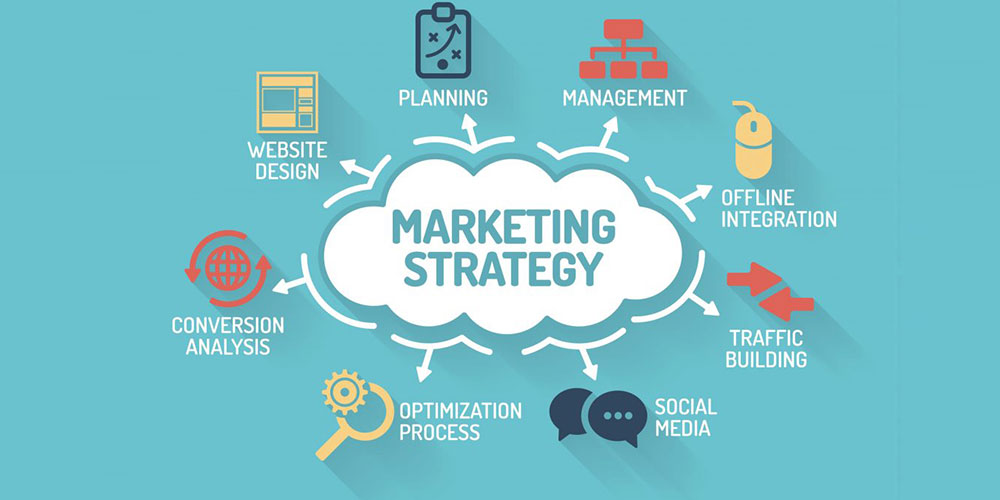 Starting a new business can be exciting, but it also comes with many challenges. One of the most crucial aspects is marketing. Without the right marketing tactics, your startup may struggle to reach its target audience. Effective marketing is essential for building brand awareness, generating leads, and driving sales. Fortunately, there are several proven marketing tactics that can help your startup succeed. Get the facts here on business startup marketing tactics. From industry experts, start or improve your new business marketing efforts.
Starting a new business can be exciting, but it also comes with many challenges. One of the most crucial aspects is marketing. Without the right marketing tactics, your startup may struggle to reach its target audience. Effective marketing is essential for building brand awareness, generating leads, and driving sales. Fortunately, there are several proven marketing tactics that can help your startup succeed. Get the facts here on business startup marketing tactics. From industry experts, start or improve your new business marketing efforts.
In this article, we will explore key marketing tactics for startups. These tactics will help you build a strong foundation, attract customers, and grow your business.
Develop a Strong Brand Identity
Before launching any marketing campaign, it is essential to establish a strong brand identity. Your brand is the face of your business. It communicates your values, mission, and personality to potential customers.
- Define Your Mission and Vision: Start by outlining your business’s mission and vision. What problem does your product or service solve? What makes your business unique? Answering these questions will help guide your brand messaging.
- Design a Memorable Logo: Your logo is one of the first things potential customers will notice. Invest in a professional logo design that reflects your brand’s identity.
- Choose a Consistent Brand Voice: Establish a tone of voice for your marketing materials. Whether it’s professional, playful, or bold, consistency in your messaging will help build brand recognition.
By creating a cohesive brand identity, you ensure that customers remember and relate to your business.
Build a Website Optimized for Conversions
A website is a key marketing tool for any startup. It serves as the digital storefront for your business, providing information about your products or services. A well-optimized website not only attracts visitors but also converts them into customers.
- User-Friendly Design: Your website should be easy to navigate, with clear calls to action (CTAs). Ensure that users can quickly find what they’re looking for, whether it’s product details, pricing, or contact information.
- Mobile Optimization: Since a large percentage of online traffic comes from mobile devices, your website must be mobile-friendly. A responsive design ensures that users have a smooth experience on any device.
- SEO Optimization: Search engine optimization (SEO) is critical for driving organic traffic to your website. Research relevant keywords and incorporate them into your site’s content, meta descriptions, and page titles.
With a well-designed, optimized website, your startup will have a platform that drives conversions and enhances your online presence.
Leverage Social Media Marketing
Social media is a powerful tool for startups. It allows you to engage with your audience, share your brand story, and promote your products or services. In addition, it provides a cost-effective way to reach a broad audience.
- Choose the Right Platforms: Focus on the social media platforms where your target audience spends the most time. For instance, Instagram and TikTok work well for younger audiences, while LinkedIn is ideal for B2B businesses.
- Create Engaging Content: Post content that resonates with your audience. This could include behind-the-scenes videos, customer testimonials, or how-to guides. Content that provides value will attract followers and build engagement.
- Use Paid Advertising: Social media platforms offer powerful advertising tools that allow you to target specific demographics. Consider using paid ads to promote new product launches, sales, or events.
By effectively leveraging social media, your startup can build a community around your brand and increase visibility.
Content Marketing and Blogging
Content marketing is an excellent way to establish your startup as an industry authority while driving traffic to your website. By consistently publishing valuable content, you can attract potential customers and build trust with your audience.
- Start a Blog: Write blog posts that address common questions or pain points your audience faces. Share tips, tutorials, and industry insights that demonstrate your expertise. Optimizing your blog posts for SEO will also help you rank higher in search engine results.
- Create Ebooks or Guides: Offering downloadable content like ebooks or guides is an effective way to collect email addresses and generate leads. These resources should provide in-depth information that helps your audience solve specific problems.
- Leverage Video Content: Video marketing is highly engaging and can help explain complex ideas in a simple way. Consider creating product demos, explainer videos, or interviews with industry experts.
By focusing on content marketing, you’ll not only drive traffic to your website but also build credibility and trust with your target audience.
Utilize Email Marketing
Email marketing remains one of the most cost-effective marketing tactics. It allows you to nurture leads, communicate directly with your audience, and drive repeat sales. By building a list of subscribers, you can create ongoing relationships with potential and existing customers.
- Create an Email List: Encourage website visitors to sign up for your email newsletter by offering incentives such as discounts or exclusive content. Building a solid email list will give you a direct line to your customers.
- Segment Your Audience: Not all customers are the same. By segmenting your email list based on customer behavior, demographics, or past purchases, you can send personalized messages that are more likely to convert.
- Send Targeted Campaigns: Use email marketing to share company updates, product launches, promotions, and helpful content. Make sure your emails are visually appealing, mobile-friendly, and include clear calls to action.
Email marketing helps you stay top-of-mind with your audience and encourages long-term customer loyalty.
Invest in Pay-Per-Click (PPC) Advertising
Pay-per-click (PPC) advertising can help your startup quickly generate traffic and leads. PPC allows you to bid for ad placement in search engine results or on social media platforms. You only pay when someone clicks on your ad, making it a cost-effective strategy.
- Google Ads: With Google Ads, your business can appear at the top of search engine results when potential customers search for relevant keywords. This is a great way to generate traffic quickly.
- Social Media Ads: Platforms like Facebook, Instagram, and LinkedIn offer PPC advertising options. These ads allow you to target specific demographics and interests, ensuring your message reaches the right audience.
- Retargeting Ads: Retargeting ads show your business’s ads to people who have previously visited your website. This keeps your brand top-of-mind and encourages users to return and make a purchase.
PPC advertising gives your startup the ability to reach potential customers at critical moments in their buying journey.
Collaborate with Influencers
Influencer marketing is an excellent way for startups to expand their reach. By collaborating with influencers in your industry, you can gain access to their audience and build credibility for your brand.
- Identify Relevant Influencers: Choose influencers whose audience aligns with your target market. They don’t need to have millions of followers; micro-influencers with smaller, engaged audiences can still drive significant results.
- Offer Product Samples: Send influencers samples of your products to review or feature on their social media accounts. Positive endorsements from trusted influencers can significantly increase your brand’s credibility.
- Run Giveaways or Contests: Collaborate with influencers to host giveaways or contests. These campaigns can generate excitement around your brand and encourage new followers.
Partnering with influencers helps your startup build brand awareness and trust, leading to increased sales and customer engagement.
Monitor and Analyze Your Results
Finally, it’s important to monitor your marketing efforts and analyze the results. This allows you to see what’s working and what needs adjustment.
- Track Key Metrics: Use tools like Google Analytics, social media insights, and email marketing platforms to track performance. Monitor metrics such as website traffic, engagement rates, and conversion rates.
- A/B Testing: Experiment with different headlines, CTAs, or ad creatives to see what resonates best with your audience. A/B testing helps you refine your strategy and maximize results.
- Adjust Your Strategy: Based on the data you collect, tweak your marketing tactics to improve performance. This iterative approach ensures your marketing efforts continually evolve and become more effective.
By regularly reviewing your performance and making data-driven decisions, your startup will stay competitive and grow faster.
Conclusion
Marketing is a critical aspect of building a successful startup. By developing a strong brand identity, leveraging social media, and investing in content and email marketing, you can attract and retain customers. Pay-per-click advertising and influencer collaborations can further expand your reach, while regular monitoring ensures your efforts remain effective. By implementing these startup marketing tactics, you’ll build a strong foundation that sets your business up for long-term success.








